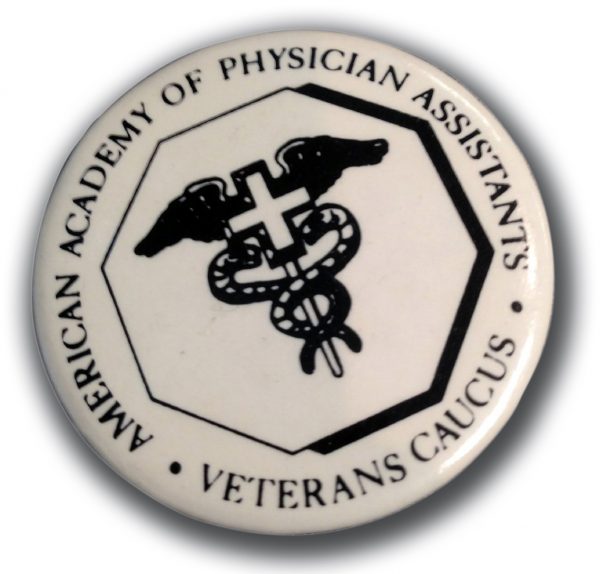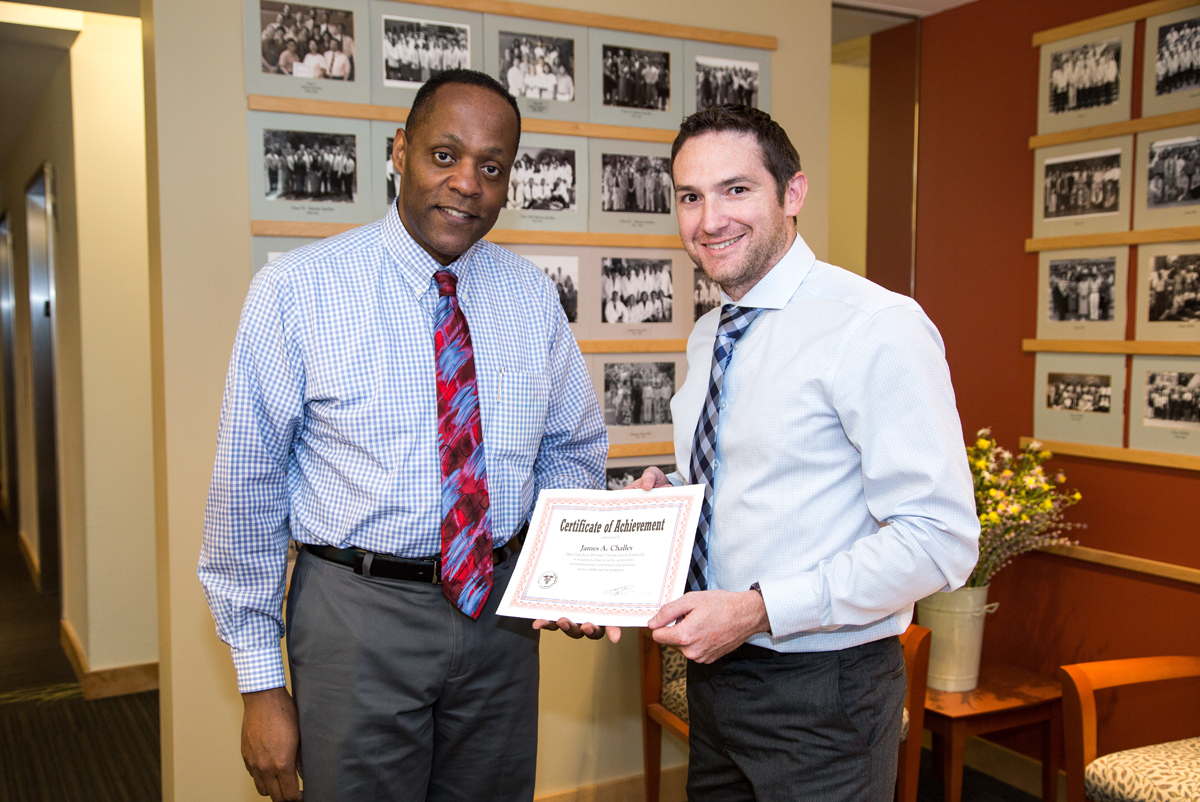 James Chally, a member of MEDEX Seattle Class 49, has been awarded the SSgt Craig Ivory Memorial Scholarship/ Veterans Caucus Scholarship by the Veterans Caucus of the American Association of Physician Assistants (AAPA). Approaching its 25th anniversary, the AAPA’s Veterans Caucus mission is to support veterans “through service, education, and fraternity.” This mission includes the goal of “supporting the educational pursuits of veterans in physician assistant programs through the awarding of scholarships.”
James Chally, a member of MEDEX Seattle Class 49, has been awarded the SSgt Craig Ivory Memorial Scholarship/ Veterans Caucus Scholarship by the Veterans Caucus of the American Association of Physician Assistants (AAPA). Approaching its 25th anniversary, the AAPA’s Veterans Caucus mission is to support veterans “through service, education, and fraternity.” This mission includes the goal of “supporting the educational pursuits of veterans in physician assistant programs through the awarding of scholarships.”
The SSgt Craig Ivory Memorial Scholarship is one of twelve that were offered during the 2015-16 award cycle, and is provided by Pat and Terri Ivory to honor the memory of their son, Craig, an Army medic who died in Iraq. The award certificate reads: “In recognition of your academic achievement, outstanding service, commitment and dedication to our country and our profession.”
“Awarding James Chally this scholarship truly upholds the standard of the Caucus’s mission,” say Gino Gianola, a Senior Lecturer on the MEDEX Seattle faculty and the treasurer of the Veterans Caucus. “He is a real leader, both in academic achievement and in serving as a role model for his class, for other students, and for other veterans. I am very proud of James as the recipient of this scholarship.

MEDEX Northwest Program Director Terry Scott presenting the AAPA Veterans Caucus Award certificate to 2015-16 recipient James Chally.
If the name James Chally sounds familiar to you, it might be because we only recently shared the news from the University of Washington that James had won a “Husky 100 Award.” Or perhaps it’s because we featured James back in June 2015, on the occasion of his being chosen as a Tillman Scholar by the Pat Tillman Foundation. Or it might simply be that he’s the kind of student and classmate that people inevitably talk about: class president for MEDEX Seattle Class 49, Special Forces Medical Sergeant with the Washington National Guard, devoted husband and father to a young daughter, and, by all accounts, one heck of a nice guy.
Before deciding to become a physician assistant, Chally served some nine years of active duty as an Army medic, most of that with Special Forces. “The training for that was about two years of my career,” he explains. “Then I spent four good years working with a team that did deployments to Afghanistan. We spent about a year in Kunduz Province, and another 9-10 months in Paktika and Ghazni Provinces. That was mainly working with locals, training local Afghan police forces.
“We also did some training in Southeast Asia predominantly,” Chally continues. “Thailand and Indonesia and Singapore. This is where we train the host nation government forces and police forces. It’s a joint training, so they’ll give us training as well in some of their SOPs and things that they do.”
On top of everything else going on for James Chally these days, he is also working with another student – a veteran and a PA student like himself, though not with MEDEX – on a project designed to help make prospective PA students coming out of the military more competitive in the application process.
“We are putting together a proposal for the AAPA (American Association of Physician Assistants) to create a guide of some sort, something that makes clear what an Army medic does, or what a Navy corpsman does, so that people who are reviewing applications or doing the interviewing, but who maybe aren’t familiar with these backgrounds, can get a better understanding of the types of training that the applicants already have, and of the experience that they bring to the table.”
“For me and Special Operations, for instance,” he continues, “our training is a year long, so we do a full six months of nothing but trauma training, and that encompasses quite a bit. Then we spend another six months just doing clinical training, diagnosing and developing differentials. A lot of medics, they operate on their own in austere environments, and bring more to the table than most people realize. I want to give people a better understanding of that experience, so that in the future, hopefully, more veterans will get into more programs. That’s the ultimate goal.”
A lot of medics, they operate on their own in austere environments, and bring more to the table than most people realize. I want to give people a better understanding of that experience, so that in the future, hopefully, more veterans will get into more programs. That’s the ultimate goal.
In the meantime, though, as he completes his first year of coursework as a MEDEX student, and anticipates year two’s clinical rotations throughout the region, James Chally is considering what he and his young family might do with the generous Veterans Caucus scholarship award.“Well, I think we’ll go out to eat first. Then we’ll buy some diapers and pay some bills. This award is very helpful, and very nice.”




